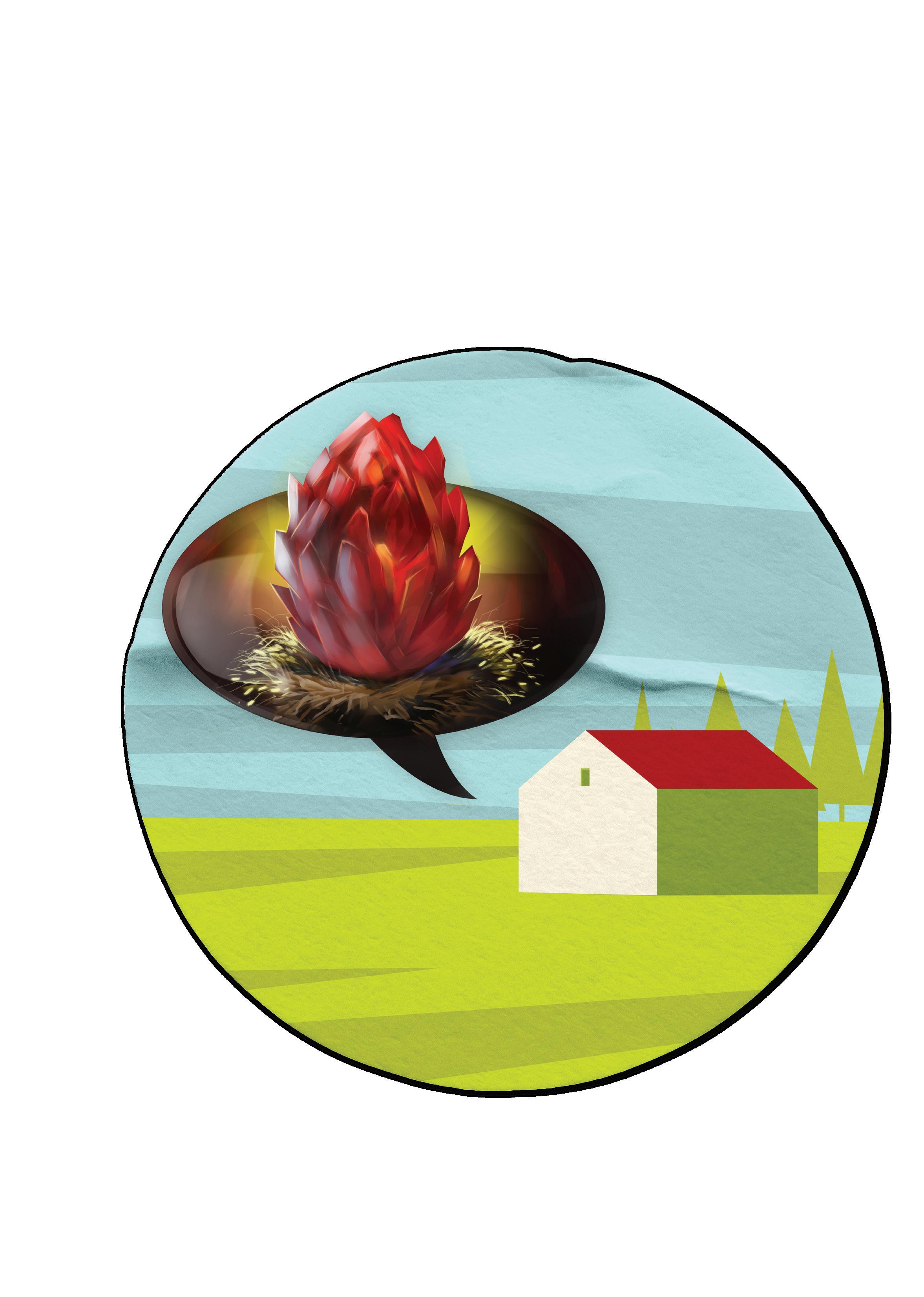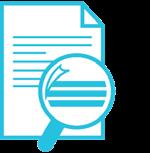Sample
• Language structures and conventions
Section 1: Listening and speaking
Listening and speaking are integral to all subjects. Each lesson begins with a discussion about the topic which serves as an introduction. Other discussions in lessons can be viewed as orals instead of only formal conversations/discussions. The more learners practise to write and deliver orals, the easier it becomes to do tasks and exams. It will also improve their selfconfidence if they speak to an audience more often.
It is important to pronounce words clearly and correctly when reading aloud. Help learners when they use incorrect sentence structure or vocabulary when they speak.
Pay attention to the listening process as it is very important in the higher grades and used during listening tests. The listening process is discussed below. Make sure you know when learners can take notes.
Listening process and strategies
The listening process is a three-phase activity and not every step of the process will be used every time. For example, if learners are listening to a recording, they will need to do a pre-listening activity which allows them to focus their listening and helps them to make associations with their own experiences. Listening activities help learners to recall details and evaluate the message. Post-listening may include learners responding to what they have heard through discussion.
Pre-listening
This introduces learners to the listening situation. It allows them to access their existing knowledge of the topic and prepare for listening.
• Talk about background knowledge before listening.
• Predict what the text may be about from the title.
• Deal with any unfamiliar vocabulary.
• Set a pre-listening question/s to focus learners’ attention.
• Prepare learners with, for example, pen and paper for taking notes.
During listening
Learners:
• Analyse the message, the speaker, and the speaker’s evidence
• Make mental connections
• Find meaning
• Ask questions
• Make inferences and confirm predictions
• Reflect and evaluate
Post-listening
Learners:
• Ask questions and talk about what the speaker said
• Review notes
• Summarise the presentation orally
• Analyse and evaluate critically what they have heard
• Combine new knowledge with prior knowledge
• Draw conclusions, evaluate, give an opinion, and respond critically.
Follow the listening process for the first few weeks and see how the learners progress. If it becomes clear that they do not have to listen to a text three times, you do not have to read it three times. The process must, however, be followed for tasks/exams.
Facilitatorʼs Guide 1/2
Section 2: Reading and viewing
The more learners read, the easier it will be for them to understand language use and pick up on things such as spelling patterns. Learners must read as much as possible on their own. Always help with pronunciation and meaning when learners read on their own.
Learners must read at least one book per term. Encourage them to read more than one book per term and from as many genres as possible.
If there is not enough time to do all the language activities in the lesson, make sure new work is covered before going back to previous work.
Section 3: Writing and presenting
The more learners write, the better. When you write, you are more inclined to use grammar and spelling correctly. Take note of the writing process set out below. Learners are also introduced to various types of texts, each with its own format (e.g. stories, dialogues, news reports, posters, and poems).
Writing process
Not every step of the writing process will be used each time. Make sure learners know where the focus is for each task, e.g. structure, sentence construction, or paragraph writing. The writing process includes:
• Planning/Pre-writing
• Drafting
• Revising
• Editing
• Proofreading
• Presenting
Planning
Analyse the structure and features of the text. What is the purpose of the text? Decide on the requirements for the format and brainstorm ideas using, for example, mind maps, idea trees, flow charts, or lists.
Drafting
Write a first draft from the planning process. Read the draft critically and get feedback from others. Make sure all the requirements for the text have been met.
Revising, editing, proofreading and presenting
Read through the draft, correct spelling errors, refine word choice, evaluate style and register, use grammar correctly. Write the final draft including correct layout/format, heading, and fonts. Present the final version.
Section 4: Language structures and conventions
By interacting with language in written and spoken format, the foundation for grammar is laid. Although all the work required by CAPS is covered in the study guide, we do, however, recommend that facilitators provide learners with additional language exercises. It does not necessarily have to be an activity; it can simply be a revision of the previous day’s work or an informal quiz about synonyms or a spelling test.
Language aspects must be entrenched early on – it forms the basis for all language work up to Grade 12 (the level only gets higher each year). The more learners practise these language aspects, the better they get at using them correctly.
Time allocation
According to CAPS, learners must spend 4 hours per week studying English First Additional Language, so 8 hours per lesson (runs over two weeks). This means that homework is not included in this time. If learners cannot complete the activities during school time, they must do it for homework.
Two hours must be spent on listening and speaking, 3 hours on reading and viewing, 2 hours on writing and presenting, and one hour on language structures and conventions.
Take note that the time allocation for each activity does not necessarily add up to the 8-hour two-week cycle. This is because the time spent on an activity will be determined by the number of learners in the class. Some activities also take longer, where the facilitator must assess learners’ work, presenting a poem, orals, etc. In these cases, the activity could be done over a few days to allow each learner the opportunity to complete the activity.
Use your discretion to make sure learners cover all the work. In some instances, the work extends over a few periods, you may decide how to complete these lessons.
Planning
SampleThe books have been compiled in such a way that the facilitator has to do the minimum planning. However, it is still necessary to prepare for the lesson (especially since the time allocated for the activities is determined by the number of learners). Go through the lesson and see what you must prepare (for example, a text for reading aloud, decorating the class to suit the theme of the lesson, the necessary preparation for a language quiz/game, to ask learners to bring an item to class the following day, etc.). Also, plan which activities you will do on which days during the two-week cycle (day 1 to 10).
The activities can be done in the order they appear in the book, but it is not necessary to do all the listening and speaking activities only at the beginning of the lesson. If time does not allow, you may decide to not do some of the listening and speaking activities such as performing a poem. If learners have mastered some language aspects, they do not have to complete all the activities in class. If, for example, they understand abbreviations, they may complete the activity on abbreviations as revision at home (you can mark it in class).
Vocabulary and spelling
Encourage learners to use their dictionaries from day one and throughout the year. If possible, write a spelling test at the end of each lesson, or they can write a spelling test at the end of the day or week.
Where possible, we have included lists of words that learners may find difficult or to help them broaden their vocabulary to make essays and transactional texts easier to write.
About the texts
The texts, poems, and stories used in the books have the necessary permissions or are freely available in the public domain. Where there is no accreditation the author of the book wrote the poem/story.
IMPORTANT NOTE
The lengths and complexity of the texts in the study guide vary. There are easier texts and there are those that may pose more of a challenge to learners. They must learn to read and engage with texts of various lengths and levels of difficulty. Reading comprehension is not only a vital step in helping learners develop a better memory and vocabulary, they also acquire the soft skills needed to navigate social and professional situations in their adult lives.
The advantages of a longer attention span cannot be overstated. The better we can focus on one task at a time, the more productive we become. Reading for longer periods of time will help instil the discipline needed to remain committed to a task until it is done.
If you find that a learner/learners are having difficulty with a text, spend time with them and help them to read the text bit by bit. We want to remove the apprehension some learners may feel when they must read a longer text for comprehension. There is no need to rush through any text and you may provide as much assistance as necessary. However, do not shy away from longer texts as we are gradually building up to the skills expected of learners in the higher grades (and beyond). This will make the transition easier for them in the long-term and they will overcome any perceived obstacles to reading longer texts.
General
A few things to keep in mind:
• Each lesson has a theme. Try to make the theme as exciting as possible – the class could be decorated to suit the theme or learners could find interesting articles about it and share them with the class.
Facilitatorʼs Guide 1/2
G07 ~ English First Additional Language
• There is a table at the beginning of each lesson in the facilitator’s guide. This table contains the relevant activities and time allocation. Although other aspects may also be covered during the activity it is not the focus and not listed in the table.
• Many activities require more than one learner if there is only one learner the facilitator must take up the other role(s).
• As mentioned, some activities require learners to bring items to class – read ahead and give learners enough time to collect these items. For example, if they must bring along a magazine/newspaper or an item for role play, give them at least a week or two to get these together.
• In-between doing activities, learners can also write short, informal tests about language aspects, such as gender, degrees of comparison, etc.
• As far as possible, the headings in the study guide are according to CAPS, even though it might say ‘perform a poem’, it refers to the poem in the study guide, unless stated otherwise.
• More advanced learners can research the topic throughout the year, design and make a poster and tell the class about it. For example, they can research the information in the ‘Did you know?’ block or you can ask them to research a specific author or poet.
Recommended books
There are no prescribed books for English First Additional Language. Learners must, however, have a good bilingual dictionary or school dictionary from Oxford or Pharos. A thesaurus is also beneficial.
As mentioned, learners are expected to read at least one book per term. This may be any appropriate book of the learner’s choice. When learners read, they broaden their vocabulary and improve their spelling. We have included suggestions for further reading throughout the study guide.
SampleSome recommended books for Grade 7 English First Additional Language level:
• Holes – Louis Sachar
• Tales of Beedle the Bard – J.K. Rowling
• Stories of Africa – Gcina Mhlophe
• Eragon – Christopher Paolini
• The Lion, the Witch and the Wardrobe (The Chronicles of Narnia series) – C.S. Lewis
• Ella Enchanted – Gail Carson Levine
• Danny the Champion of the World – Roald Dahl
• White Fang – Jack London
• The Borrowers – Mary Norton
• Harry Potter Series – J.K. Rowling
• Charlotte’s Web – E.B. White
Facilitatorʼs Guide 1/2
G07 ~ English First Additional Language
• The Tale of Despereaux – Kate Di Camillo
• How to Eat Fried Worms – Thomas Rockwell
• Wonder – R.J. Palacio.
• The Lightning Thief – Rick Riordan
• Lord of the Flies – William Golding
• The curious incident of the dog in the night – Mark Haddon
• Fantastic Mr Fox – Roald Dahl
• Little Women – Louisa May Alcott
Formal assessment
No activity in the study guide is done for formal assessment. Please refer to the portfolio book for all formal assessments.
Exams
There are two exams in Grade 7 – the June and November exams. In both exams, learners write three papers.
• June exams
ל Paper 1: Oral (listening comprehension/debate/conversation/prepared or unprepared speech/group discussion)
ל Paper 2: Reaction to written texts (reading comprehension of literary/nonliterary text, comprehension of visual text, summary, language structures and conventions)
ל Paper 3: (written before the exams) Writing (transactional text: 2 short or 1 long) (poster/advertisement/web page/review, descriptive or argumentative essay)
• November exams
ל Paper 1: Oral (listening comprehension/debate/conversation/prepared or unprepared speech/group discussion)
ל Paper 2: Reaction to written texts (reading comprehension of literary/nonliterary text, comprehension of visual text, summary, language structures and conventions)
ל Paper 3: (written before the exams) Writing (transactional text: 2 short or 1 long) (newspaper article/questionnaire/directions/instructions, descriptive, argumentative, or narrative essay)
Always refer to the assessment plan as the content of the exams may change.
English First Additional Language
YEAR PLAN
LESSON 1: Digital citizen
LESSON 2: Whodunnit?
1
LESSON 3: It was a dark and stormy night …
LESSON 4: Ancient Egypt
LESSON 5: The lighthouse
LESSON 6: The rabbit in the moon
LESSON 7: Be kind
2
3
LESSON 8: Unreality TV?
LESSON 9: How sweet it is!
LESSON 10: Snow animals
LESSON 11: The Age of Discovery
LESSON 12: Voices of Africa
LESSON 13: Our strange world
Sample
LESSON 14: No place like home
4 LESSON 15: Here be dragons …
LESSON 16: Telling the bees
LESSON 17: Shipwrecked!
LESSON 18: Easy, breezy …
Units 1 and 2 (terms 1 and 2) are in this facilitator’s guide, and units 3 and 4 (terms 3 and 4) are in facilitator’s guide 2/2.
• Riddles • Prefixes, suffixes, and root words • Articles
• Have a group discussion
• Do a listening comprehension
• Have a panel discussion
• Listen to a folk tale
• Take part in a dialogue
• Read a play aloud in class
• Talk about drama
• Present a speech
• Do prepared reading
• Listen to a poem
• Tell a story
• Retell a story
• Listen to short stories
• Introduce yourself and others
• View a visual text: advertisement
• Read an extract from a novel
• Read a visual text
• Read folk tales
• Read an extract from a oneact play
• Read poems • Independent reading
• Study the key features of a poem
• Read short stories
• Discuss the features of short stories
Listening and speaking
• Learn about polysemy
• Homonyms and homophones
Adjectives
Synonyms and antonyms • Singular and plural
Inverted commas • Questions
Interjections
• Write a poem • Write a dialogue
• Write diary entries
• Write a narrative/reflective essay
• Write a story based on a personal experience
Reading and viewing
• Write a friendly letter • Nouns (compound and collective)
Idioms and proverbs • Subject-verb agreement
Finite verbs
Pronouns
Spelling rules and patterns
Punctuation
Sentences and tenses
• Plan a narrative/descriptive paragraph/essay
Writing and presenting
Language structures and conventions
and stormy night …
LESSONS:
Sample
‘Do not say anything online that you would not want plastered on a billboard with your face on it’.
– Erin Bury
How often do you press ‘send’, ‘comment’ or ‘post’ only to feel sorry about it a few seconds later? Just as you leave footprints in the sand, your digital footprint is a record of everything you do online. That means every comment you make, every photo you post, and every video you upload is stored and can be found and tracked by others.
Right now, you may only be worried about what your parents or your friends find, but do not forget that at some stage you will complete a university entrance form or apply for a job. What does this mean? It means you should probably think twice before doing or posting anything online that you do not want the entire world to know about you
You know by now that cyberbullying is just as dangerous as physical bullying. You know that you should respect others and use the same etiquette online as you would in the real world
A good digital citizen protects their personal information, uses good judgement, and treats others with respect. Whether you are posting on social media, sending an email, or commenting on an online discussion, practicing good digital citizenship makes our online world a more welcoming place for everyone.
What types of things do people share that they might later be sorry or embarrassed about? Share your opinion with the class or your facilitator.
How do we become better digital citizens?
Be respectful and always ask permission before you buy anything online
Remember to put down your tablet or disconnect from your device and spend time with others.
Know when it is time to turn off your devices and get enough rest
Make sure the online source you are using is credible – do not spread fake news and ask critical questions about what you read online.
Sample
Avoid suspicious emails, websites, and online advertisements. If something looks or sounds too good to be true, it probably is.
Keep your private life secret. Know what to share and with whom.
Report abusive behaviour, inappropriate images or content to your parents or a teacher. DO NOT CONFRONT people online or get yourself into trouble.
Make passwords easy to remember, but difficult to guess.
Make sure the digital footprint you leave behind is positive and does not hurt anyone –especially yourself.
Throughout the lesson we will read about technology and how it has changed and influenced our lives – sometimes for the better and other times not so much. Make notes as you go along or gather ideas for the story you will write later about your personal experience with technology or the online world.
Activity 1: Introduce yourself and others
25 minutes
Why do you think we introduce ourselves? Can you name a few reasons?
Learners may give their own reasons, but we mostly introduce ourselves to create a good first impression, meet new people with confidence, practise and enhance our public speaking skills and it helps to break the ice when meeting new people.
There are many famous introductions in books, films, and history.
Sir Henry Morton Stanley who was famous for his exploration of central Africa and his search for missionary and explorer David Livingstone, whom he later claimed to have greeted with the nowfamous line: ‘Dr Livingstone, I presume?’
Sample
‘Call me Ishmael.’ Ishmael is a character in Herman Melville’s novel, Moby Dick, which opens with this line. He is the first-person narrator in much of the book.
‘Me Tarzan, you Jane’ are supposedly the words with which Tarzan introduced himself to his future wife, Jane Porter. In fact, they were first used by Johnny Weissmuller in Photography Magazine, summing up his role as Tarzan in the 1932 film, Tarzan of the Apes. The words are not in the film, nor in the original book by Burroughs – but it is still one of the best introductions ever.
‘Bond, James Bond’ is one of the most well-known movie catchphrases of all time.
Can you see how important a good introduction is and how effective or memorable it can be?
When you first meet someone, it is polite to introduce yourself. In that way, the person knows who you are and can refer to you by name when speaking to you
Below are some important things to know about introducing yourself and others.
Some introductions are formal while others are informal.
Here are some examples of phrases of introduction.
When introducing others
Formal: ‘I would like you to meet Mr Gumedi.’
Less formal: ‘I would like to introduce Mr Gumedi.’
Informal: ‘Sihle, this is Thandi.’
When introducing yourself
Formal: ‘I don’t think we have met. May I introduce myself?’
Less formal: ‘Hello, my name is Albert.’
Informal: ‘Hi, I’m Angela.’
Greeting responses that follow an introduction.
Greeting
Formal
‘How do you do?’
Less formal
‘I am pleased/happy/glad to meet you.’
Informal
‘It is nice/good/great meeting you.’
Response
‘It is a pleasure meeting you.’
‘Pleased/Happy/Glad to meet you, too.’
‘Same here.’
Greeting responses for people you know
Greeting
Response
‘Good morning/afternoon/evening, Janet.’ ‘Good morning/afternoon/evening, Thandi.’ ‘Hello, Lucas. How are you?’ ‘Very well, thank you.’ ‘Hi, how are you doing?’ ‘Fine, thanks. And you?’ ‘Hi, Ridwaan. What’s new?’ ‘Nothing much.’
With friends who want to know how you are, you can answer questions about how you feel truthfully: ‘Not very well.’ / ‘I’m feeling ill.’ / ‘I just failed my maths test.’
Approaching or introducing yourself to a teacher or other adult
Introduce yourself
Explain what you need from them
‘I am a Grade 7 learner, and ...’ ‘I would like to talk to you about ...’
‘I am planning on joining the ...’
‘I saw your email about tutoring and ...’
‘I read about your homework class ...’
Handling polite conversation
If they say
‘Hi, how are you?’
‘How are you doing?’
Sample
‘How is it going?’
‘What’s happening?’
‘What’s up?’
‘Hey, dude! What’s up?’
‘Hey, how’s it going? Great to see you! Got to run, catch you later.’
‘I am interested in ...’
‘I am curious about ...’
‘I could use some help with ...’
Make sure they are available
‘Is this a good time to talk?’
‘Could we talk for a few minutes?’
‘May I stop by later to talk to you for a few minutes?’
‘Would you have time to meet with me to talk about that?’
The usual response is Or you could try
‘Fine, thanks, and you?’
‘Okay, how about you?’
‘Okay, and you?’
‘Not much, how about you?’
‘Same old, same old, and you?’
‘Not much. What’re you up to?’
‘Hi!’ (and a wave)
‘Actually, I am new to the school, can you show me around, please?’
‘Okay, but I am looking for the principal’s office. Can you tell me where it is, please?’
‘Okay, but I forgot my lunch at home.’
‘Well, I’m trying to figure out what to wear to Margot’s party.’
‘Right now, I’m trying to get over this horrible cold.’
‘I feel clueless! Does this maths class ever end?’
‘Bye!’
When you write a dialogue or narrative essay with characters speaking, you may use the informal greetings as listed above. This makes the words your characters/ speakers say more authentic. However, do not use informal greetings in formal/ prepared/unprepared speeches – it is not appropriate, and you will lose marks.
Introduce yourself to other learners or your facilitator by saying ‘hello’ or ‘good morning’ in your home language and then in English. Then give your name and surname. Say one sentence about yourself. It could be something about your family or what you enjoy most. For example: ‘Dumela/Sawubona/Goeiemôre/Good morning …’
We always introduce ourselves in the simple present tense. The simple present tense tells us what is happening right now.
Introduce yourself using a formal and informal style of introduction.
Activity 2: Listen to a short story
30 minutes
Pre-listening
Your facilitator will read a short story to you. It is about a teenager and her family and the role of technology and social media in their daily lives. Read the vocabulary in the box before your facilitator reads the story to you.
During listening
Make notes of important points as you listen. Listen carefully and think about some of these points in the story.
• What are the main and supporting ideas?
• Who are the characters?
Sample• What is the sequence of events?
• Are there any unfamiliar words?
• Specific details in the story.
Post-listening
Arrange your notes in a logical order to help you discuss the story.
extravagantly: Excessively or elaborately
trickle: (Of a liquid) flow in a small stream.
• A complete guide with all the texts (contemporary and classic) for comprehension exercises, speeches, and reading included.
• Contains tips for better writing, critical reading and understanding.
• Various levels of questions and activities to develop language skills and critical thinking.
• Complete explanations on grammar and syntax
• Practical examples of writing tasks.
• Encourages independent reading and research and broadens vocabulary.
• Use in school or at home.
home classroom college workplace

























